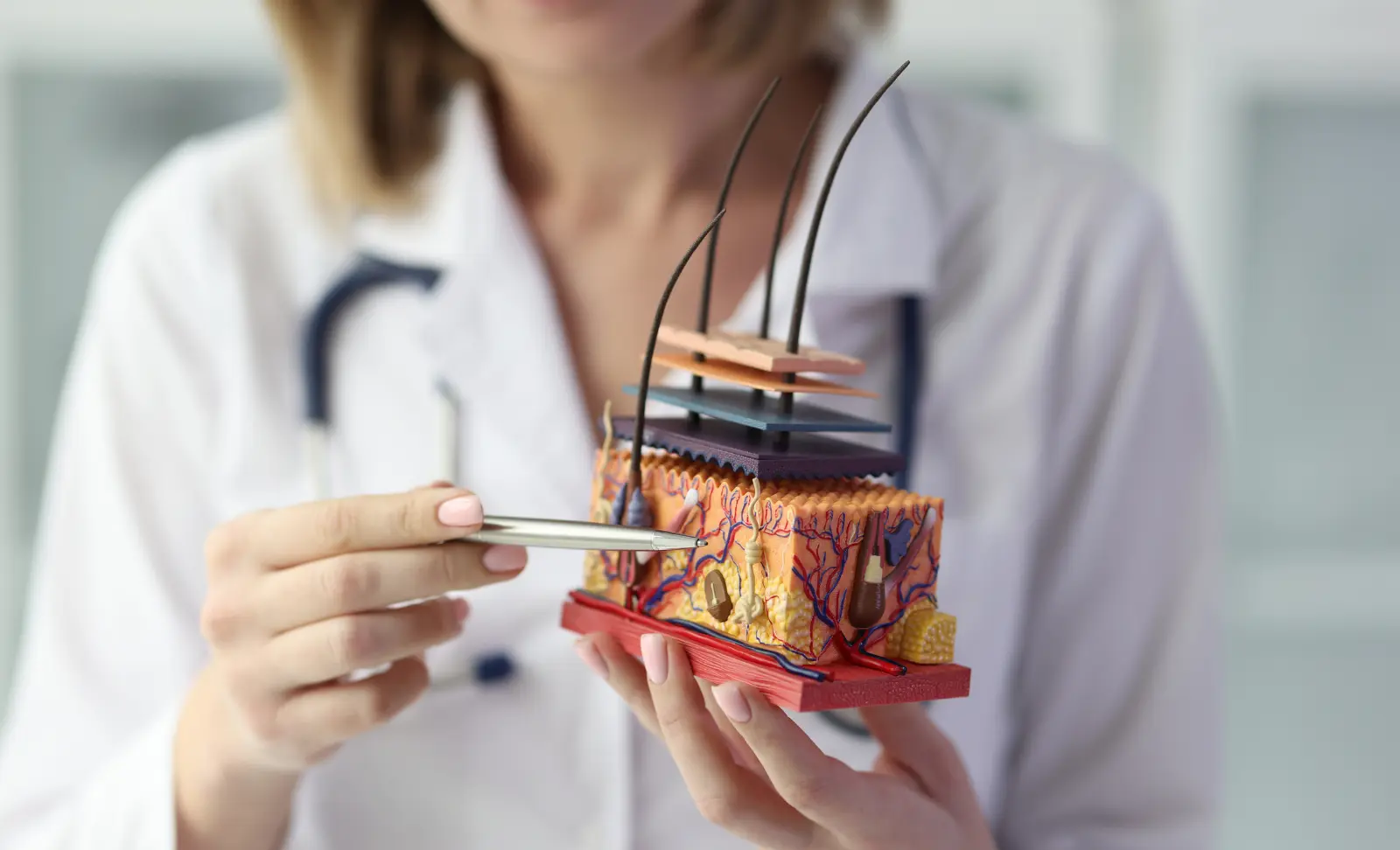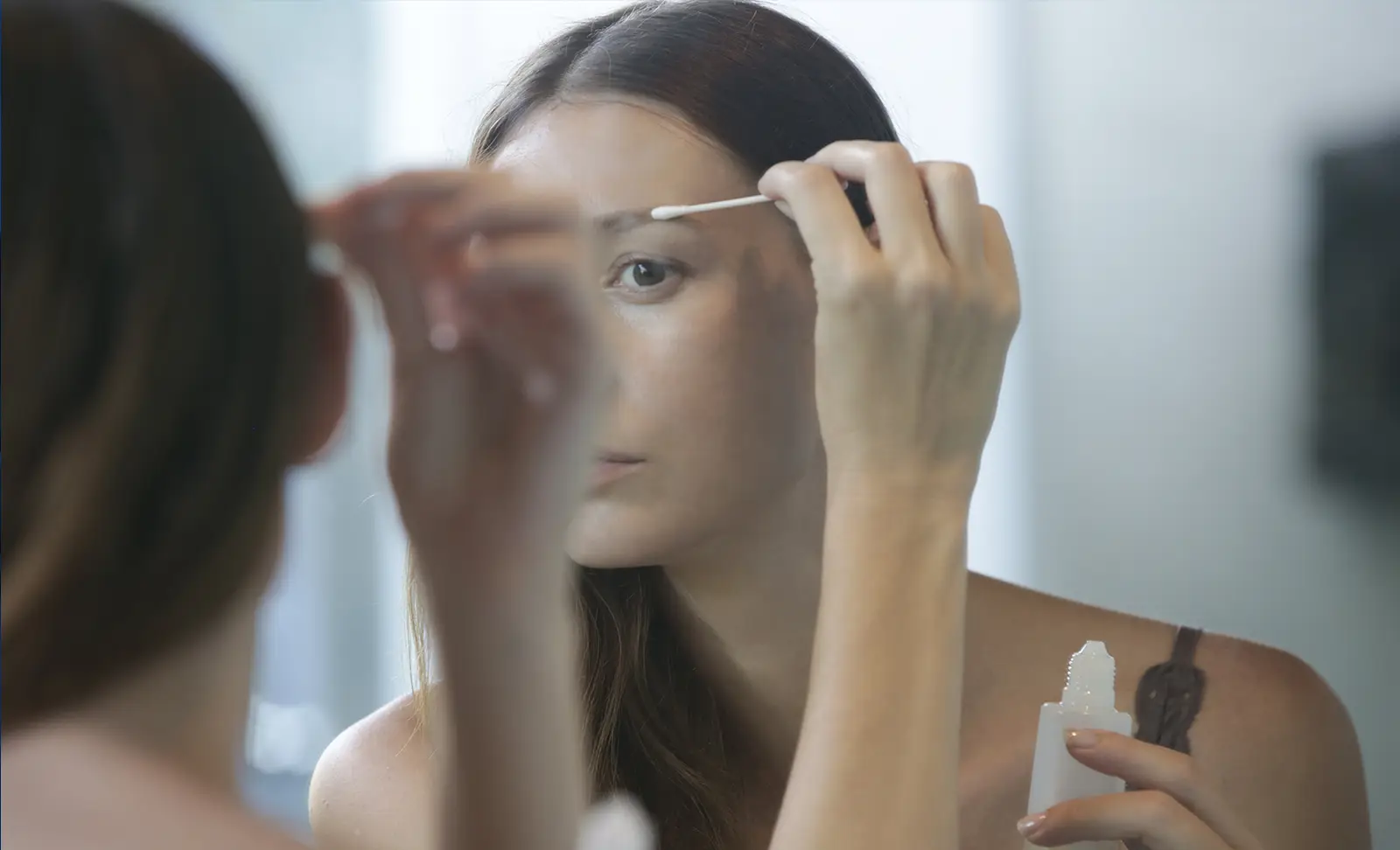
Hair loss can happen for a number of different reasons and for women there are a number of underlying causes. PCOS (polycystic ovaries syndrome) can cause the body to change in a number of different ways, one common change can happen to the hair growth cycle.
What is PCOS?
Polycystic ovary syndrome is a condition that affects a women’s’ hormone levels. Those with PCOS produce higher-than-normal amounts of male hormones. This imbalance in hormones can cause women to skip menstrual periods and can make it difficult to get pregnant. PCOS can also cause issues with hair growth and hair loss as well as other long-term health problems.
How can PCOS impact hair?
For many with PCOS, the imbalance in hormone levels can cause hair to grow thicker on the face and body, however, some can experience hair thinning and hair loss. This type of hair loss is referred to as female pattern hair loss.
PCOS specifically affects your endocrine levels and causes hormonal imbalances. Many women who suffer from PCOS have increased levels of androgens; testosterone and dihydrotestosterone (DHT). An increased amount of DHT can cause hair loss in men and women.
Certain androgens – specifically DHT, when found in high amounts, latch onto hair follicles and can start to affect the hair growth cycle, eventually causing hair loss. DHT then clogs the hair follicle, causing it to be unable to create new hair in the future, this process is known as androgenetic alopecia, which can affect both men and women.
Will my hair grow back?
Unfortunately, hair loss caused by PCOS is permanent and it will not grow back, androgenetic
Alopecia (male pattern baldness) is one of the most common types of hair loss and can affect both men and women, it is one of the hardest types of hair loss to fix. There is no cure for this type of hair loss, and because of this, the hair will not grow back.
As mentioned above, androgenetic alopecia causes hair follicles to become blocked and unable to produce new hair and because of this, your hair will never grow back. However, there are treatments available such as an FUE hair transplant that can help towards restoring the appearance of a fuller head of hair. You can see the results from our FUE hair transplants here and if you would like more information on hair loss or our procedure please contact us today for a no obligation consultation.


